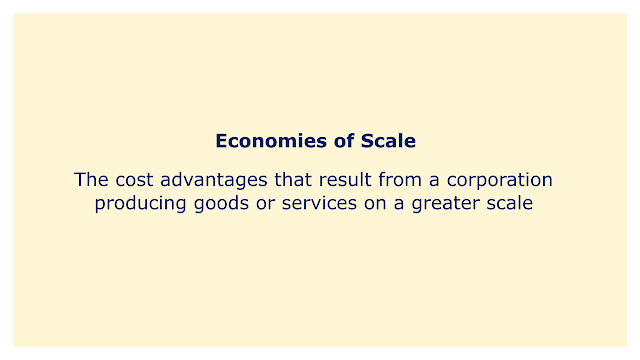 |
| Image: Moneybestpal.com |
An economics term known as "Economies of Scale" describes the cost advantages that result from a corporation producing goods or services on a greater scale. In other words, a corporation can lower its average cost of production as it raises its production volume, which can result in more profitability and competitiveness.
Economies of scale can happen for a number of reasons. Secondly, by spreading out fixed expenses, such as the price of machinery and equipment, over a larger volume of output, the average cost per unit can be decreased. Alongside lowering costs, increased production volumes might result in more effective utilization of labor and other inputs. Third, larger companies may have more negotiating leverage with suppliers, enabling them to agree on cheaper input pricing.
The profitability and competitiveness of a corporation can be significantly impacted by economies of scale. For instance, a business with reduced production costs would be able to offer cheaper pricing than those of its rivals, resulting in a larger market share and greater profits.
The fact that economies of scale are not limitless must be remembered, though. A business may eventually approach a limit where it can no longer grow its output volume without spending more money or getting lower profits. The use of economies of scale may not be appropriate in all sectors or forms of production.
